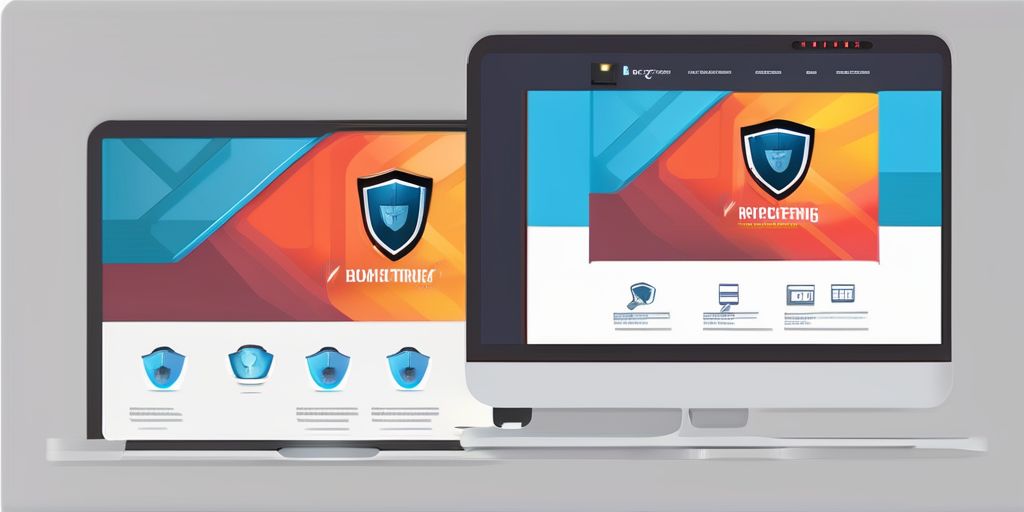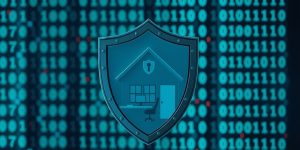In today’s digital landscape, web security plays a crucial role in protecting businesses from cyber threats and ensuring cost reduction. By implementing effective web security measures, businesses can mitigate the risk of cyber attacks, prevent data breaches, and minimize financial losses. Moreover, web security enhances customer trust by safeguarding their data, ensuring secure online transactions, and meeting compliance requirements. Additionally, web security can provide a competitive advantage by gaining a competitive edge, attracting and retaining customers, enhancing brand reputation, and differentiating from competitors. In this article, we will explore the importance of cost-effective web security and its impact on businesses.
Key Takeaways
- Implementing effective web security measures can help businesses reduce the risk of cyber attacks, prevent data breaches, and mitigate financial losses.
- Web security enhances customer trust by safeguarding their data, ensuring secure online transactions, and meeting compliance requirements.
- Cost-effective web security measures provide businesses with access to advanced tools and software without the need for expensive investments.
- Web security can give businesses a competitive advantage by gaining a competitive edge, attracting and retaining customers, enhancing brand reputation, and differentiating from competitors.
- Regular security audits, employee training on security best practices, and implementing multi-factor authentication are essential components of effective web security.
The Role of Web Security in Cost Reduction
Protecting Against Cyber Attacks
Implementing a comprehensive web security strategy is crucial for protecting your business against cyber attacks. This strategy should include imposing the best practices of multi-factor and two-factor authentication, regularly updating antivirus software, maintaining endpoint security, and monitoring your internet connection for unusual activities. Prudent risk management also involves training your staff about potential cyber threats. By ensuring that your team recognizes the signs of phishing attacks and understands the importance of secure login credentials, you can greatly enhance your security measures.
To effectively protect your business from cyber threats, it is important to go beyond basic antivirus software and adopt a well-rounded, preemptive strategy. This strategy should anticipate potential cyber threats and be infused with the latest cybersecurity best practices. By implementing these strategies, you not only secure your business but also work towards preserving customer trust. Assuring your clients that you take their personal data privacy and security seriously establishes you as a responsible and trustworthy business.
Remember, while advanced technology plays a crucial role in cybersecurity, it is important not to neglect the basics. Simple measures like regular data backups, software updates, and strong password policies can go a long way in preventing cyber attacks. Enforcing multi-factor authentication adds an extremely effective layer of security. These measures are often low-cost or even free, making them easily accessible for businesses of all sizes.
Preventing Data Breaches
Preventing data breaches is crucial for organizations to protect sensitive information and maintain the trust of their customers. There are several key measures that can be implemented to minimize the risk of data breaches:
- Regularly update and patch software and systems to address any vulnerabilities that could be exploited by hackers.
- Implement strong access controls and authentication mechanisms, such as multi-factor authentication, to ensure that only authorized individuals can access sensitive data.
- Encrypt data both at rest and in transit to protect it from unauthorized access.
- Conduct regular security audits and penetration testing to identify and address any weaknesses in the organization’s security infrastructure.
By following these best practices, organizations can significantly reduce the likelihood of data breaches and safeguard their valuable data.
Mitigating Financial Losses
Financial Loss from Data Breaches
The most obvious cost comes from data breaches. Depending on the sensitivity of compromised information, whether from a profit and loss spreadsheet or a complex business database, a company can incur costly extortion demands from cyber criminals, financial compensation for affected customers, and regulatory fines. For instance, T-Mobile’s 2021 breach compromised over 53 million customers’ data, leading to around $350 million in fines and legal costs. Beyond this, the intangible loss of customer trust and reputation can have long-lasting financial impacts on the company.
Recovery of Lost or Stolen Data
Dedicated efforts to recover and restore compromised data to its original state.
Loss of Income
Financial coverage to mitigate the economic impact during the recovery period.
Legal Counsel
Comprehensive guidance and support in legal matters arising from cyber incidents.
Crisis Management
Strategic planning and professional assistance to manage the aftermath of a cybersecurity breach effectively.
Fraud Services
Robust protection against financial losses due to fraudulent activities stemming from cyber threats.
Data Breach Investigation
Investigation and analysis to determine the cause and extent of a data breach.
Reputational Damage
The loss of sensitive data, especially if it involves personal or financial information of donors and beneficiaries, can severely damage the trust and confidence placed in the organization. This could result in a loss of supporters and volunteers, making it harder for non-profits to achieve their goals.
Legal Costs
Legal expenses incurred in dealing with the aftermath of a cybersecurity incident, including potential lawsuits and regulatory compliance.
Operational Disruption
The disruption of normal business operations due to a cybersecurity incident can result in financial losses from downtime, decreased productivity, and the need for additional resources to restore operations.
Insurance Premiums
The cost of cyber insurance premiums, which provide financial protection in the event of a cybersecurity incident.
Investment in Security Measures
The upfront cost of implementing and maintaining effective security measures, such as firewalls, encryption, and intrusion detection systems, to prevent and mitigate financial losses from cyber threats.
Ensuring Business Continuity
Business continuity planning is crucial for managing business operations and minimizing disruptions. It involves identifying critical assets, documenting backup processes, and testing disaster recovery response plans. Testing helps determine the time it takes to restore normal operations. In the event of a cyber attack, it is important to verify the authenticity of the attack and assess the risk to business data. Additionally, it is essential to designate team members responsible for contacting the FBI and insurance providers, as well as working with the US Department of the Treasury if a ransom is paid. Ransom payments may have legal implications and make the business liable for financial crimes.
Implementing Effective Web Security Measures
Choosing the Right Security Solutions
When it comes to choosing the right security solutions for your business, it is crucial to consider your specific needs and requirements. Here are some key factors to keep in mind:
- Threat Detection and Prevention: Look for solutions that offer advanced threat detection capabilities to identify and mitigate potential risks.
- Scalability and Flexibility: Ensure that the security solutions can scale with your business growth and adapt to evolving threats.
- Integration and Compatibility: Choose solutions that seamlessly integrate with your existing infrastructure and are compatible with your technology stack.
- Vendor Reputation and Support: Research the reputation and track record of the security solution vendor, and ensure they provide reliable support and timely updates.
Remember, investing in the right security solutions is essential to protect your business from cyber threats and safeguard your sensitive data.
Regular Security Audits and Updates
Regular security audits and updates are crucial for maintaining a strong web security posture. These audits help identify vulnerabilities and weaknesses in the system, allowing for timely remediation and protection against potential threats. By regularly updating security measures, organizations can stay ahead of emerging cyber risks and ensure that their defenses are up to date.
To effectively implement regular security audits and updates, organizations can follow these best practices:
- Conduct comprehensive vulnerability assessments to identify potential weaknesses in the system.
- Keep all software and applications up to date with the latest patches and security updates.
- Regularly review and update access controls and user permissions to prevent unauthorized access.
- Implement a robust incident response plan to quickly address and mitigate security incidents.
Remember, web security is an ongoing process that requires continuous monitoring and proactive measures. By prioritizing regular security audits and updates, organizations can strengthen their defenses and protect against evolving cyber threats.
Training Employees on Security Best Practices
A comprehensive cybersecurity awareness and training program is crucial for organizations to foster a cybersecurity culture. All employees and relevant stakeholders should be trained on the importance of cybersecurity and the specific policies and procedures adopted by the organization.
To further reinforce the importance of security, organizations can create cybersecurity champions throughout the organization. These individuals can evangelize the significance of following security policies and procedures, helping to spread awareness and ensure compliance.
Improving cybersecurity performance over time should be a priority. Continuous improvement is key in staying ahead of evolving threats. By regularly updating antivirus software, maintaining endpoint security, and monitoring internet connections for unusual activities, organizations can mitigate risks.
Additionally, staff training plays a vital role in strengthening the organization’s defense against cyber attacks. Training sessions can educate employees on how to recognize and respond to phishing attempts, as well as the importance of strong and secure passwords.
By making cybersecurity part of the workplace culture and implementing a comprehensive training program, organizations can empower their employees to become the first line of defense against cyber threats.
Implementing Multi-factor Authentication
Implementing multi-factor authentication is a crucial step in enhancing web security. By requiring users to provide multiple forms of identification, such as a password and a unique code sent to their mobile device, the risk of unauthorized access is significantly reduced. In addition to multi-factor authentication, there are several other important measures to consider:
- Keeping networks, devices, and software up to date to ensure the latest security patches are applied.
- Regularly backing up data and verifying the completeness and security of backups.
- Implementing security across networks and devices, including securing all ports and protecting connected endpoints, APIs, and data in transit and at rest.
- Providing ongoing education and training to employees on cyber security best practices.
It is important to create a comprehensive web security strategy tailored to your needs, which includes multi-factor authentication and other essential security practices. By implementing these measures, you can significantly reduce the risk of cyber attacks and protect your valuable data and systems.
The Impact of Web Security on Customer Trust
Building a Secure Online Reputation
Implementing these strategies does not just secure your business from cyber threats but also works positively towards preserving customer trust. The ability to assure your clients that you take their personal data privacy and security seriously establishes you as a responsible, trustworthy business. Ultimately, risk management is not merely a reactionary endeavor but a proactive approach. It is a testament to your commitment to protecting your business, your employees, and your customers.
- Implement a table for presenting structured, quantitative data. Ensure it’s succinct and formatted correctly in Markdown.
- Use a bulleted or numbered list for less structured content, like steps, qualitative points, or a series of related items.
Remember, a secure business isn’t just a protected entity; it’s a reliable partner to its customers. And that credibility can go a long way in building and sustaining the growth you plan to achieve. So, strengthen your defenses, and invest in your peace of mind – because in the grand scheme of things, the importance of cybersecurity is equal to the success of your best practices can ensure the security of your business operations. Together, we can weave a secure, digital future.
Safeguarding Customer Data
The protection of customer data is of utmost importance for organizations, especially in light of data protection regulations such as the GDPR and CCPA. Organizations are under increasing pressure to ensure the privacy and security of customer data. One effective way to achieve this is by outsourcing cyber security to a Managed Service Provider (MSP). MSPs are well-versed in compliance requirements and can help organizations implement the necessary controls to meet these obligations.
By partnering with an MSP, businesses can benefit from enhanced data protection measures, including encryption, access controls, data backup, and disaster recovery. This not only helps organizations comply with regulations but also instills confidence in customers and business partners.
To ensure the safeguarding of customer data, organizations should consider the following:
- Implementing strong encryption methods to protect sensitive information.
- Enforcing strict access controls to limit unauthorized access to customer data.
- Regularly backing up data to prevent loss in the event of a security breach.
- Having a comprehensive disaster recovery plan in place to quickly restore operations in case of an incident.
By prioritizing the protection of customer data, organizations can build trust with their customers and maintain a strong reputation in the market.
Ensuring Secure Online Transactions
In today’s digital world, online transactions have become a common practice for both personal and business purposes. However, these transactions come with inherent risks, as our digital assets are constantly at risk of being exposed, stolen, or sold. To mitigate these risks and ensure secure online transactions, businesses need to implement robust web security measures. This includes encrypting sensitive data, implementing secure payment gateways, and regularly monitoring for any suspicious activities.
To further enhance the security of online transactions, businesses can also consider implementing multi-factor authentication. This adds an extra layer of protection by requiring users to provide additional verification, such as a fingerprint or a one-time password. By implementing these measures, businesses can instill trust and confidence in their customers, ensuring that their online transactions are secure and protected.
To summarize, here are some key steps to ensure secure online transactions:
- Encrypt sensitive data
- Implement secure payment gateways
- Regularly monitor for suspicious activities
- Consider implementing multi-factor authentication
Remember, the security of online transactions is crucial for maintaining customer trust and protecting sensitive information. By prioritizing web security, businesses can safeguard their reputation and differentiate themselves from competitors.
Meeting Compliance and Regulatory Requirements
Meeting compliance and regulatory requirements is crucial for businesses to avoid costly legal fees and penalties. Government regulations and industry requirements mandate cybersecurity standards for many businesses, making cybersecurity a top priority. For example, the U.S. Securities and Exchange Commission adopted rules requiring companies to disclose ‘material cybersecurity incidents’ and submit information on their cybersecurity strategy and risk management initiatives. Additionally, industry mandates like PCI DSS set standard security policies and procedures for entities that accept payment cards. By monitoring privileged access to critical systems, organizations can ensure compliance and minimize risks. Implementing effective web security measures is essential to meet these requirements and protect sensitive data.
To ensure compliance and regulatory adherence, businesses can:
- Regularly update security solutions to stay ahead of evolving threats
- Train employees on security best practices
- Implement multi-factor authentication for enhanced access control
By following these measures, businesses can demonstrate their commitment to cybersecurity and build trust with customers and partners.
Tip: Investing in web security not only helps meet compliance requirements but also mitigates the risk of cyber events and financial losses.
Web Security as a Competitive Advantage
Gaining a Competitive Edge
Implementing robust web security measures is crucial for gaining a competitive edge in today’s digital landscape. By prioritizing the protection of sensitive customer data and ensuring secure online transactions, businesses can build trust and loyalty among their customers. Additionally, implementing multi-factor authentication and regularly updating security solutions can significantly reduce the risk of cyber attacks and data breaches.
To further enhance web security, businesses should consider the following:
- Conduct regular security audits to identify vulnerabilities and address them promptly.
- Train employees on security best practices to create a culture of cybersecurity awareness.
- Build a secure online reputation by implementing strong encryption protocols and regularly monitoring for any potential threats.
By investing in cost-effective web security measures, businesses can not only protect themselves from financial losses but also differentiate themselves from competitors and attract and retain customers. As the importance of web security continues to grow, it is essential for businesses to stay ahead of the curve and prioritize the implementation of effective security measures.
Attracting and Retaining Customers
To attract and retain customers, it is crucial for businesses to prioritize web security. Cybersecurity investments are now expected by consumers and business partners, who have higher expectations for the protection of their information. By investing in robust web security measures, businesses can build trust with their customers and partners, which can ultimately lead to revenue gains.
Implementing effective web security measures can include:
- Regular security audits and updates
- Training employees on security best practices
- Implementing multi-factor authentication
By regularly assessing and updating security measures, businesses can stay ahead of evolving cyber threats and ensure the safety of customer data.
Tip: Building trust with customers is essential for long-term success. Prioritizing web security demonstrates a commitment to protecting customer information and can set businesses apart from competitors.
Enhancing Brand Reputation
Enhancing brand reputation is a crucial aspect of web security. A security breach involving sensitive data can have serious consequences for a company, damaging its standing in the public eye and affecting customer confidence and loyalty. Incidents like these can have a lasting effect on a company’s economic health. Rebuilding a damaged reputation is a lengthy and resource-intensive process, further escalating the overall expenses.
Recently, LastPass, a well-known password management company, faced a serious setback when it experienced a security breach. This incident led to the exposure of customer email addresses and password hashes. Given the nature of their business, this breach significantly impacted their reputation for reliability and security.
Implementing effective web security measures not only protects against potential breaches but also demonstrates a commitment to safeguarding customer data and maintaining a secure online environment. This proactive approach to security can enhance brand reputation and instill trust in customers.
To ensure brand reputation is maintained, organizations should consider investing in cybersecurity insurance. Cybersecurity insurance not only protects finances but also helps maintain a positive reputation. In the aftermath of a cyber-attack, having insurance demonstrates a commitment to security and resilience, which enhances the company’s reputation among clients, partners, and stakeholders.
In conclusion, enhancing brand reputation through robust web security measures is essential for businesses. By protecting against breaches, demonstrating a commitment to customer data security, and investing in cybersecurity insurance, companies can differentiate themselves from competitors and build a strong and trusted brand image.
Differentiating from Competitors
In today’s highly competitive business landscape, standing out from competitors is crucial for success. One effective way to differentiate your business is by prioritizing cost-effective web security. By investing in robust security measures, you can gain a competitive edge and attract and retain customers.
Here are some key reasons why cost-effective web security can help you differentiate from competitors:
- Protecting customer data: By safeguarding customer information, you demonstrate your commitment to their privacy and security, building trust and loyalty.
- Ensuring secure online transactions: Customers expect their online transactions to be safe and secure. By providing a secure platform, you can instill confidence in your customers and encourage them to choose your business over competitors.
- Meeting compliance and regulatory requirements: Compliance with industry regulations and data protection laws is essential. By ensuring your web security measures meet these requirements, you can differentiate yourself as a trustworthy and reliable business.
Tip: Investing in cost-effective web security not only protects your business from potential cyber threats but also enhances your brand reputation and customer trust.
By prioritizing cost-effective web security, you can set yourself apart from competitors and position your business as a trusted and secure option for customers.
Web security is crucial for businesses in today’s digital landscape. With cyber threats becoming more sophisticated, it is essential to protect your website from potential attacks. At Business Website Security, we understand the importance of safeguarding your online presence. Our unbeatable website security solutions provide comprehensive protection against malware, hacking attempts, and data breaches. Whether you run a small business or a large enterprise, our team of experts will work closely with you to develop a customized security strategy that meets your specific needs. Don’t wait until it’s too late. Take action now and ensure the security of your website with Business Website Security.
Conclusion
In conclusion, the importance of cost-effective web security cannot be overstated. Cyber attacks pose significant risks to businesses of all sizes and industries, with potential financial and reputational consequences. By implementing strong cybersecurity measures, companies can protect their valuable data and ensure the smooth functioning of their IT systems. Working with a cyber security managed service provider offers cost-effective solutions, allowing businesses to access advanced tools and expertise without the need for expensive investments. Additionally, organizations should not overlook the basics of cybersecurity, such as regular data backups, software updates, and strong password policies. Ultimately, investing in cybersecurity is crucial for the success and reliability of a business, as it builds trust with customers and safeguards against future threats.







